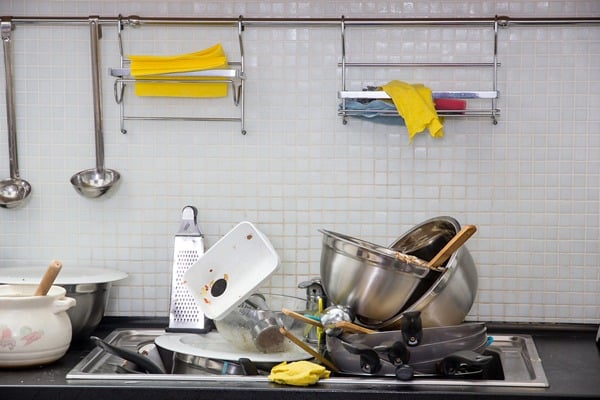6 Biggest Sources of Stress in the Home and How to Reduce Them

Reducing stress is easy once you truly understand the biggest sources of stress in your home.


Reducing stress is easy once you truly understand the biggest sources of stress in your home.
Your home should be your sanctuary, right? In a perfect world, it would be a place where you could retreat from the stresses of daily life to relax and rejuvenate. The reality is that sometimes a house can actually cause us to experience unwanted stress, adding to our already pressure-filled lives.
Fortunately, there are some actions you can take to minimize the stress of running a home. Here are some of the most common sources, along with some tips for how to relieve stress quickly at home:

Managing a household budget can feel overwhelming, especially for first-time homeowners. However, having a clear budget that serves as a roadmap for anticipating home expenses can actually help you feel more secure and in control. Here’s how to effectively manage your household budget:

A disorganized home might be the most widely reported domestic stressor. It’s true that decluttering your space can leave more room for relaxation, but that often feels easier said than done. Here’s how to be more clean and organized:
Did You Know: American Home Shield® members snag exclusive discounts on cleaning services and products.

By squeezing in more time for household dinner preparation with quick and easy dinner recipes and food preparation, you could be saving a lot of energy during the week trying to get food on the table in time for dinner. Here are a few ways to make meal planning easier:
Our home warranty plans help keep your essential appliances up and running.


Taking care of household chores like laundry is the beginning to freeing up more time on your calendar, so you can begin taking care of the things that really matter. Here are a few tips for improving your laundry system:

A well-kept lawn adds appeal and value to your home, but keeping up with lawn work can be overwhelming if you don’t have a plan. Here’s how to keep a handle on your landscaping:

Avoiding appliance and system breakdowns is one of the most important steps to reducing stress at home. The truth is, these kinds of major breakdowns aren’t always your fault. 56 percent of homeowners face unexpected home repairs after moving into their new homes, and more than a third end up spending more than $1,000 to fix these unanticipated issues.
Investing in a home warranty might be a valuable home solution to help you save time and money. While you can’t always avoid sudden home system and appliance malfunctions, you can take some steps to minimize them and to be prepared when they do occur:
Homeownership comes with its fair share of stress, and one of the biggest worries is the unexpected— those things you just can’t predict. With an American Home Shield® home warranty, you can breathe easier, knowing that major appliance and system breakdowns won’t drain your wallet or your peace of mind. The best way to reduce stress is to know you’ve got someone in your corner. Let American Home Shield® lighten your load so you can enjoy your home, worry-free.
AHS assumes no responsibility, and specifically disclaims all liability, for your use of any and all information contained herein.
Have a plan for your home when things don't go according to plan
Shop Home WarrantiesDevelopment